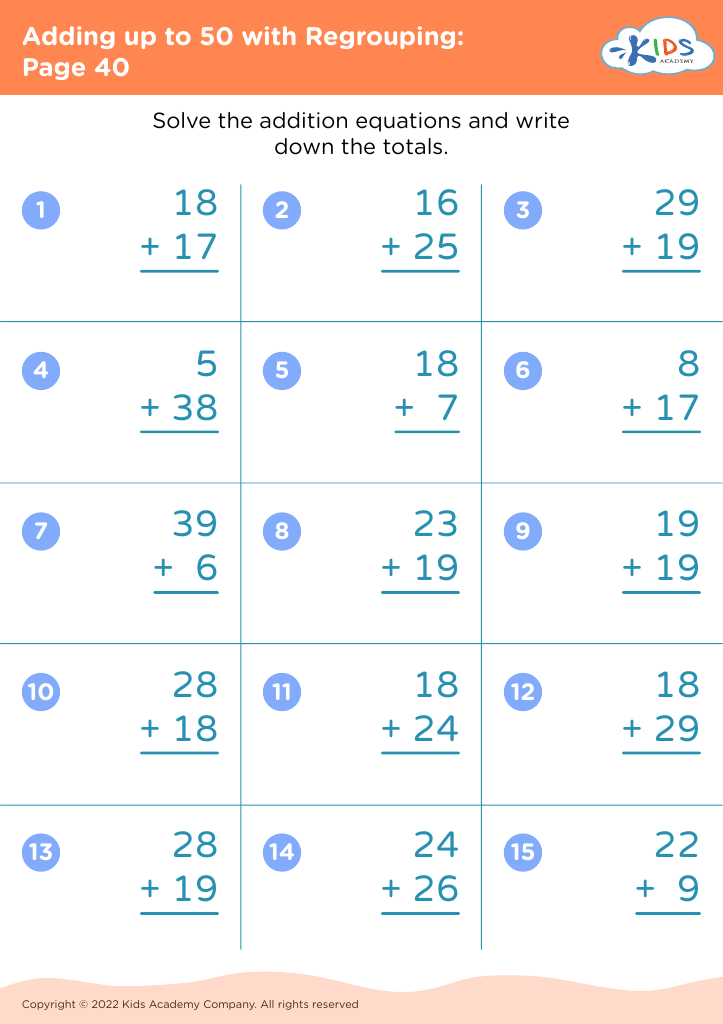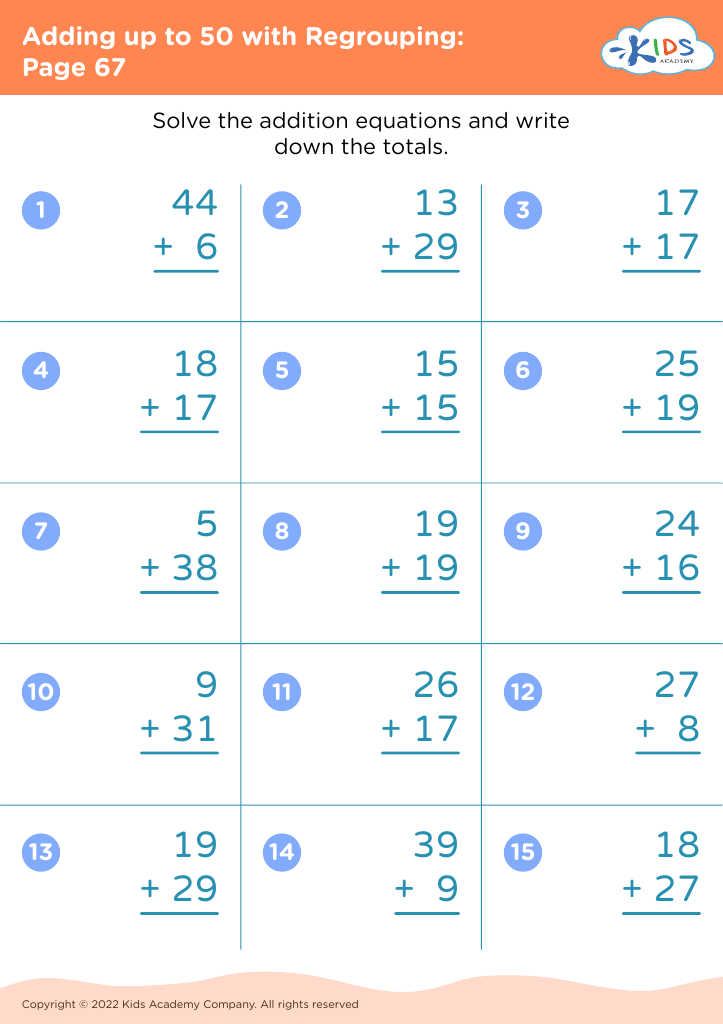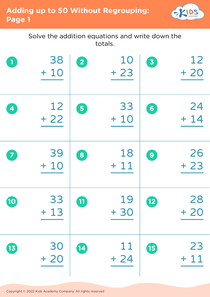Fraction simplification Adding up to 50 with Regrouping Worksheets for Ages 5-7
8 filtered results
-
From - To
Explore our engaging Fraction Simplification Adding Up to 50 with Regrouping Worksheets, specifically designed for young learners aged 5-7! Tailored to make math enjoyable, these worksheets emphasize understanding fractions while developing addition skills. Our visually appealing activities guide children in simplifying fractions and mastering regrouping concepts, boosting their confidence in basic arithmetic. As students work through colorful examples and practice problems, they'll enhance their problem-solving abilities in a fun, interactive way. Visit our site to discover these essential resources that support early math education and help your child thrive in their learning journey! Ideal for classrooms or at-home practice.
Understanding fraction simplification and addition involving regrouping is crucial for children aged 5-7, as it forms the foundation for their future mathematical skills. For this age group, these concepts enhance numeracy and promote critical thinking. Mastering fraction simplification allows children to recognize equivalent fractions and develop a deeper understanding of part-whole relationships, essential in everyday contexts like sharing food or measuring ingredients in cooking.
Additionally, as children learn how to add numbers up to 50 with regrouping, they develop strategies for handling larger addition problems. This skill not only fosters their ability to work with bigger numbers, but it also promotes skills such as patience, focus, and problem-solving. Parents and teachers play a vital role in facilitating these learning moments, creating opportunities for discussion, and providing practical examples. Engaging children through interactive and enjoyable methods—like games, visuals, or real-life scenarios—can make learning feel less daunting and more accessible.
By emphasizing these foundational skills early on, parents and teachers help children build confidence in their mathematical abilities, laying the groundwork for more complex concepts in later grades. Early engagement with these ideas cultivates a positive attitude toward math and encourages lifelong learning.





















